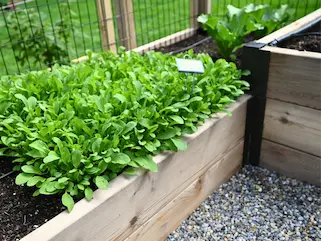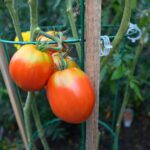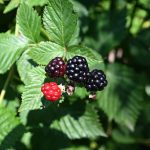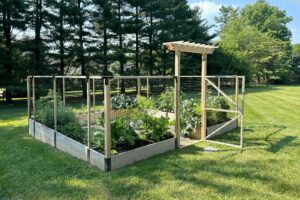
[et_pb_section fb_built=”1″ admin_label=”section” _builder_version=”4.16″ da_disable_devices=”off|off|off” global_colors_info=”{}” da_is_popup=”off” da_exit_intent=”off” da_has_close=”on” da_alt_close=”off” da_dark_close=”off” da_not_modal=”on” da_is_singular=”off” da_with_loader=”off” da_has_shadow=”on”][et_pb_row admin_label=”row” _builder_version=”4.16″ background_size=”initial” background_position=”top_left” background_repeat=”repeat” global_colors_info=”{}”][et_pb_column type=”4_4″ _builder_version=”4.16″ custom_padding=”|||” global_colors_info=”{}” custom_padding__hover=”|||”][et_pb_text _builder_version=”4.27.0″ _module_preset=”default” text_text_color=”#000000″ link_font=”|700|||on|||#000000|” link_text_color=”#000000″ hover_enabled=”0″ global_colors_info=”{}” header_2_font_size_last_edited=”on|phone” header_2_font_size_phone=”25px” header_2_line_height=”1.4em” sticky_enabled=”0″]
Introduction
Summer gardening season is an exciting time full of the joys of time spent outside, sharing gardening memories with others, and enjoying abundant harvests. However, due to vacation or other factors a garden can fall out of maintenance and get overgrown, or affected by pests.
Here’s how to address several summer-specific gardening challenges to ensure a bountiful harvest, including:
- Managing extreme heat
- Soil moisture levels
- Weed and garden control
- Pest control
- Disease control
- Maximizing your harvest
[/et_pb_text][et_pb_image src=”https://backyard-eats.com/wp-content/uploads/2023/12/Copy-of-Drip-Irrigation-scaled.jpg” title_text=”Copy of Drip Irrigation” _builder_version=”4.25.1″ _module_preset=”default” global_colors_info=”{}”][/et_pb_image][et_pb_text _builder_version=”4.25.1″ _module_preset=”default” text_text_color=”#000000″ link_font=”|700|||on|||#000000|” link_text_color=”#000000″ global_colors_info=”{}” header_2_line_height=”1.4em” header_2_font_size_phone=”25px” header_2_font_size_last_edited=”on|phone”]
Managing Extreme Heat
Extreme heat has a negative effect on plants known as “heat stress.” Signs of heat stress include wilted or scorched leaves, and leaves or blossoms dropping off of plants. Effective and regular watering is key to preventing heat stress and growing healthy plants. Without enough water, plants won’t thrive or produce as much fruit as they could. It’s also important to avoid the extreme of over-watering to compensate for the summer heat, which can lead to fungal problems and other diseases.
The best time to water is in the early morning, when the rate of evaporation is slower. At midday, water will evaporate quickly and fail to reach the roots of plants where it can make a difference. Late evening is also an acceptable time to water, although depending on the weather excess water may collect overnight. Regardless of time of day, water plants deeply at the roots. This will encourage root growth and prevent fungal diseases caused by wet leaves.
We find drip irrigation to be an efficient system for deep, regular watering at the roots of plants. Once a drip irrigation system is installed, adjusting the watering time to account for rainstorms or extreme heat is as simple as setting an alarm clock. Irrigation waters your plants the right amount, in the right place, at the right time – so you don’t have to worry about the chore of hand-watering anymore and can spend more time enjoying your garden!
In certain cases or for some crops, shade clothes may be useful to reduce sunlight intensity. When possible, we recommend strategic planting instead to position taller crops in a way that shades shorter, more sensitive crops like herbs or greens from full summer sun. This planting strategy can also be combined with garden infrastructure like trellises.
[/et_pb_text][et_pb_text _builder_version=”4.25.1″ _module_preset=”default” text_text_color=”#000000″ link_font=”|700|||on|||#000000|” link_text_color=”#000000″ global_colors_info=”{}” header_2_line_height=”1.4em” header_2_font_size_phone=”25px” header_2_font_size_last_edited=”on|phone”]
Soil Moisture Levels
In addition to watering, mulch can help retain soil moisture. Organic materials like straw or wood chips will block evaporation and airflow, keeping the soil cool and moist. Likewise, mulch regulates soil temperature to keep it cooler during the way and warmer at night.
Mulch is also a great complement to seasonal soil care that replenishes soil nutrients and structure. For example, soil amendments like compost and coconut coir improve soil’s ability to retain moisture without water-logging the roots of plants. We recommend adding compost in fall and soil conditioner (a mix of soil conditioner, coconut coir, and other amendments) in spring before spring planting.
Healthy soil that can hold and drain water as needed will also make your watering system more efficient, reducing watering problems and making summer garden maintenance easier for you.
[/et_pb_text][et_pb_image src=”https://backyard-eats.com/wp-content/uploads/2024/06/6.png” title_text=”6″ _builder_version=”4.25.1″ _module_preset=”default” global_colors_info=”{}”][/et_pb_image][et_pb_text _builder_version=”4.25.1″ _module_preset=”default” text_text_color=”#000000″ link_font=”|700|||on|||#000000|” link_text_color=”#000000″ global_colors_info=”{}” header_2_line_height=”1.4em” header_2_font_size_phone=”25px” header_2_font_size_last_edited=”on|phone”]
Weed and Garden Maintenance
Effective weed control is essential for maintaining a productive raised bed garden during the summer. Raised beds inherently provide better weed control as their elevated structure allows for more manageable soil and easier weed removal.
Applying mulch not only helps retain moisture but also acts as a barrier to suppress weed growth by blocking sunlight and inhibiting weed seed germination. Utilizing vertical trellises can help manage plant sprawl, making it easier to identify and remove weeds that compete for nutrients and water. Additionally, these practices create a healthier garden environment, reducing hiding spots for pests and minimizing conditions conducive to disease development. This holistic approach significantly reduces weed pressure and promotes a thriving summer garden, while also contributing to overall pest and disease management.
[/et_pb_text][et_pb_text _builder_version=”4.25.1″ _module_preset=”default” text_text_color=”#000000″ link_font=”|700|||on|||#000000|” link_text_color=”#000000″ global_colors_info=”{}” header_2_line_height=”1.4em” header_2_font_size_phone=”25px” header_2_font_size_last_edited=”on|phone”]
Pest Control
Raised bed gardens provide a great controlled environment for anyone to grow food. However, they can still be affected by pests – especially when one aspect of the system, like soil health or moisture – is off.
The key to effective pest management is early detection. The more often you interact with your garden, the more likely you are to notice when something changes – and the sooner you notice something’s off, the sooner it can be addressed. (On a positive note, this is also why we recommend clients put their garden near a door or window if possible – so you can always see what’s in harvest and ready to enjoy!)
Here are some examples of common summer garden pests:
- Aphids
- Identification: small, soft-bodied insects on new growth
- Impact: sap-sucking, leading to distorted leaves and stunted growth
- Spider Mites
- Identification: tiny, spider-like creatures, often causing fine webbing
- Impact: yellowing leaves and reduced vigor
- Caterpillars (e.g., Cabbage Loopers, Tomato Hornworms)
- Identification: large, green caterpillars with voracious appetites
- Impact: significant leaf and fruit damage
We recommend organic maintenance methods for our gardens, to ensure that you feel good about the produce you grow, harvest, and share with others. Natural remedies like neem oil, insecticidal soaps, and other sprays can be used to treat pests like aphids or caterpillars. When in doubt, ask your gardener what solution they recommend before buying the first chemical you see in the store. Many pests have similar symptoms that can be mistaken for each other. Always follow proper safety precautions when applying any pesticides yourself.
[/et_pb_text][et_pb_image src=”https://backyard-eats.com/wp-content/uploads/2024/06/2.png” title_text=”2″ _builder_version=”4.25.1″ _module_preset=”default” global_colors_info=”{}”][/et_pb_image][et_pb_text _builder_version=”4.25.1″ _module_preset=”default” text_text_color=”#000000″ link_font=”|700|||on|||#000000|” link_text_color=”#000000″ global_colors_info=”{}” header_2_line_height=”1.4em” header_2_font_size_phone=”25px” header_2_font_size_last_edited=”on|phone”]
Disease Control
Maintaining a healthy raised bed garden throughout the summer involves not just managing pests, but also staying vigilant about plant diseases. Like pest infestations, diseases can severely impact your garden if factors such as soil health or moisture levels are not properly managed. Early detection remains key; by staying proactive and attentive, you can ensure that you notice subtle changes and maintain a healthy and productive garden all summer long.
Here are some examples of common summer garden diseases:
- Powdery Mildew
- Identification: white, powdery spots on leaves and stems.
- Impact: reduced photosynthesis and weakened plants.
- Blight (Early and Late):
- Identification: dark spots on leaves, stems, and fruit.
- Impact: rapid plant decline and fruit rot.
To prevent and treat plant diseases in raised bed gardening, it’s crucial to take proactive steps. Ensure adequate spacing between plants to reduce humidity and prevent fungal growth. Prune regularly to promote better airflow throughout the garden. Utilize fungicides preventively, opting for organic options like neem oil and baking soda solutions. Maintain good hygiene practices by regularly sanitizing tools and promptly removing and disposing of infected plant material. Our maintenance services offer expert assistance in organic pest and disease control, empowering you with the knowledge and skills needed to cultivate a healthy garden throughout the season.
[/et_pb_text][et_pb_image src=”https://backyard-eats.com/wp-content/uploads/2024/06/3.png” title_text=”3″ _builder_version=”4.25.1″ _module_preset=”default” global_colors_info=”{}”][/et_pb_image][et_pb_text _builder_version=”4.25.1″ _module_preset=”default” text_text_color=”#000000″ link_font=”|700|||on|||#000000|” link_text_color=”#000000″ global_colors_info=”{}” header_2_line_height=”1.4em” header_2_font_size_phone=”25px” header_2_font_size_last_edited=”on|phone”]
Maximizing Your Harvest
Succession planting is one strategy to maximize the amount of produce you can harvest – especially between seasons. Succession planting replaces empty spaces with new crops after a harvest is finished, allowing for continuous production and efficient use of space.
Choose heat-tolerant plant varieties if heat stress is a major concern for you. These plants are designed to survive and grow well in hotter conditions than non-heat-tolerant varieties, meaning they will be easier to establish and provide a larger and better-tasting harvest. Examples of crops that may have heat-tolerant varieties include tomatoes and peppers.
Harvest everything from your garden in the morning for maximum freshness. In the morning, the fruits and vegetables will still be full of moisture and flavor from the night before – not dried out from the midday sun.
Another great way to maximize your harvest is to learn storage and preservation methods to enjoy homegrown produce year-round! This can be as simple as learning the best way to store lettuce in the fridge so it doesn’t go bad quickly – or finding a new favorite recipe to use up all of that zucchini before it goes to waste. Freezing, pickling, and canning are also great preservation options for you to enjoy the flavors of summer year-round.
[/et_pb_text][et_pb_text _builder_version=”4.25.1″ _module_preset=”default” text_text_color=”#000000″ link_font=”|700|||on|||#000000|” link_text_color=”#000000″ global_colors_info=”{}” header_2_line_height=”1.4em” header_2_font_size_phone=”25px” header_2_font_size_last_edited=”on|phone”]
Conclusion
Summer gardening in raised beds can be both rewarding and challenging, but with the right strategies, you can overcome the heat, pests, and other common issues to ensure a successful harvest. By staying proactive with consistent watering, effective pest control, and proper plant care, you’ll be able to enjoy the fruits (and vegetables) of your labor. Remember to regularly check your garden, implement preventative measures, and adjust your techniques as needed.
Don’t forget to subscribe to our email newsletter for more seasonal gardening resources!
[/et_pb_text][/et_pb_column][/et_pb_row][/et_pb_section]






